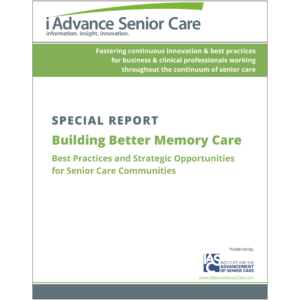Healthy weight at midlife may delay the onset of Alzheimer’s disease
New research suggests people's weight at age 50 may show whether they develop Alzheimer's disease – and when.
The study, published in Molecular Psychiatry, analyzed data of 1,394 participants who completed cognitive roughly every two years for about 14 years. Of this group, 142 people developed Alzheimer’s disease. Researchers compared the weight of Alzheimer’s patients when they were 50 years old and still cognitively healthy.
They found that for each unit increase in BMI above 25, symptoms of Alzheimer’s would appear six and one-half months sooner. Researchers also looked at 191 autopsy results and found that higher BMI in midlife was associated with a higher amount of Alzheimer’s-related beta amyloid plaque in the brain at time of death even if they didn’t develop dementia.
"Maintaining a healthy (body mass index) BMI at midlife is likely to have long-lasting protective effects," said Madhav Thambisetty, MD, Clinical Investigator and Chief at the Unit of Clinical and Translational Neuroscience at the National Institute on Aging (NIA) at the National Institutes of Health and lead study author.
The study didn't track changes in patients' BMI before or after age 50. It’s unknown whether losing weight after age 50 changes dementia risk.
"Understanding how risk factors in midlife may accelerate the onset of Alzheimer's disease in later life is important in our efforts to develop interventions and treatments that may delay the onset of Alzheimer's," Thambisetty told CBS News. "Although being overweight or obese in midlife is known to increase the risk of Alzheimer's disease, we do not yet understand how it may affect the age when the disease first begins.
More than 5 million Americans are living with Alzheimer’s disease, according to the NIA. That number is expected to more than double by 2050.
Read the full study here.

Nicole was Senior Editor at I Advance Senior Care and Long Term Living Magazine 2015-2017. She has a Journalism degree from Kent State University and is finalizing a master’s degree in Information Architecture and Management. She has extensive studies in the digital user experience and in branding online media. She has worked as an editor and writer for various B2B publications, including Business Finance.
Related Articles
Topics: Alzheimer's/Dementia











